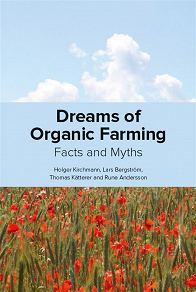
Förlag: Fri Tanke Förlag
Kategori:
Naturvetenskap
Tillgänglig sedan: november 2016
Dreams of organic farming. Facts and myths
Organic farming receives significant public attention with an assurance that this form of agriculture is good for the environment and provides safe, wholesome foods. This, in turn, has led to organic forms of production receiving public financial support in Sweden, as in other countries, mostly in Europe. In Sweden, national agri-environmental payments total EUR 50 million annually.
Policy objectives have also been set, with a first objective to convert 20 per cent of total farmed acreage in Sweden to organic farming by 2010. Another is that public procurement of organic
food for schools, hospitals, elderly care, and similar should be 25 per cent of all foodstuffs purchased. Consumers are also increasingly demanding organic foodstuffs hoping to get added value in the form of better product quality, while benefiting the environment.
But is this really so? Do consumers get better foodstuffs and a better environment when they buy organic? Are the wide-ranging political subsidies justified? Are organic foods free from toxins?
Can organic production provide enough food? Are nutrient losses to our streams and rivers really reduced? Is organic farming climate smart? Is organic food more wholesome?
Information
Stöds av följande plattformar
PC/Mac
Surfplatta Läsplatta
Smartphone
